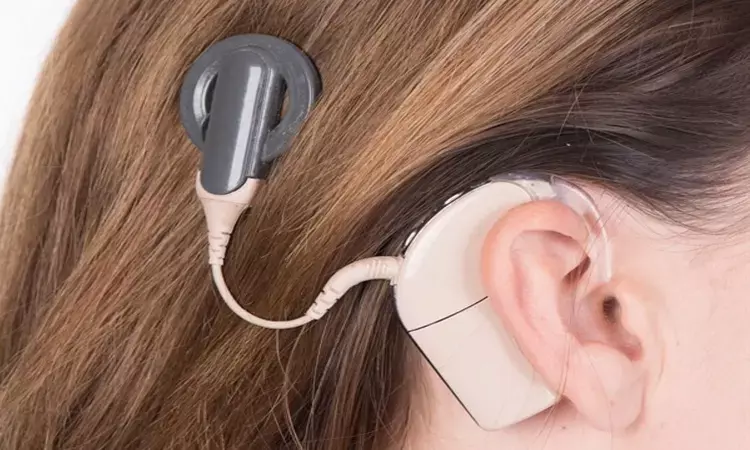- Home
- Medical news & Guidelines
- Anesthesiology
- Cardiology and CTVS
- Critical Care
- Dentistry
- Dermatology
- Diabetes and Endocrinology
- ENT
- Gastroenterology
- Medicine
- Nephrology
- Neurology
- Obstretics-Gynaecology
- Oncology
- Ophthalmology
- Orthopaedics
- Pediatrics-Neonatology
- Psychiatry
- Pulmonology
- Radiology
- Surgery
- Urology
- Laboratory Medicine
- Diet
- Nursing
- Paramedical
- Physiotherapy
- Health news
- Fact Check
- Bone Health Fact Check
- Brain Health Fact Check
- Cancer Related Fact Check
- Child Care Fact Check
- Dental and oral health fact check
- Diabetes and metabolic health fact check
- Diet and Nutrition Fact Check
- Eye and ENT Care Fact Check
- Fitness fact check
- Gut health fact check
- Heart health fact check
- Kidney health fact check
- Medical education fact check
- Men's health fact check
- Respiratory fact check
- Skin and hair care fact check
- Vaccine and Immunization fact check
- Women's health fact check
- AYUSH
- State News
- Andaman and Nicobar Islands
- Andhra Pradesh
- Arunachal Pradesh
- Assam
- Bihar
- Chandigarh
- Chattisgarh
- Dadra and Nagar Haveli
- Daman and Diu
- Delhi
- Goa
- Gujarat
- Haryana
- Himachal Pradesh
- Jammu & Kashmir
- Jharkhand
- Karnataka
- Kerala
- Ladakh
- Lakshadweep
- Madhya Pradesh
- Maharashtra
- Manipur
- Meghalaya
- Mizoram
- Nagaland
- Odisha
- Puducherry
- Punjab
- Rajasthan
- Sikkim
- Tamil Nadu
- Telangana
- Tripura
- Uttar Pradesh
- Uttrakhand
- West Bengal
- Medical Education
- Industry
Frailty index not related with hearing scores after cochlear implantation in elderly: Study

USA: Lower frailty index and more improvement in pure-tone average (PTA) predict the better quality of life (QoL) after cochlear implantation in older adults, a recent study in the journal Otolaryngology–Head and Neck Surgery, has revealed. According to the study, after cochlear implantation in older adults, frailty index does not correlate with hearing scores.
Alana Aylward, Department of Otolaryngology–Head and Neck Surgery, University of Utah, Salt Lake City, Utah, USA, and colleagues aimed to examine the relationship among frailty index, hearing measures, and hearing-related QOL in older recipients of cochlear implants.
For this purpose, the researchers conducted a cross-sectional survey of adults aged ≥65 years at the time of receiving cochlear implants between July 13, 2000, and April 3, 2019. They were asked to complete a questionnaire on hearing-related QOL.
Chart review was performed to identify patients' characteristics. Correlations were calculated between frailty index and audiologic outcome measures as well as between speech recognition scores and QOL scores.
Data for 143 respondents were included. The mean age was 80.7 years, with a mean 27.8 years of hearing loss before implantation.
Key findings of the study include:
- The mean frailty index was 11.1 (SD, 10.6), indicating that patients had 1 or 2 of the measured comorbidities on average.
- No correlation was found between lower frailty index (better health) and hearing scores, including pure tone averages (PTAs) and speech recognition scores.
- Lower frailty index and larger improvement in PTA after cochlear implantation predicted better QOL scores on univariate analysis (respectively β = −0.42, β = −0.15) and multivariate analysis (β = −0.28, β = −0.16).
- No speech recognition scores correlated with QOL after cochlear implantation.
"Frailty index does not correlate with hearing scores after cochlear implantation in older adults. Lower frailty index and more improvement in PTA predict better QOL scores after cochlear implantation in older adults," wrote the authors.
Reference:
The study titled, "Frailty and Quality of Life After Cochlear Implantation in Older Adults," is published in the journal Otolaryngology–Head and Neck Surgery.
DOI: https://journals.sagepub.com/doi/abs/10.1177/01945998211004589
Dr Kamal Kant Kohli-MBBS, DTCD- a chest specialist with more than 30 years of practice and a flair for writing clinical articles, Dr Kamal Kant Kohli joined Medical Dialogues as a Chief Editor of Medical News. Besides writing articles, as an editor, he proofreads and verifies all the medical content published on Medical Dialogues including those coming from journals, studies,medical conferences,guidelines etc. Email: drkohli@medicaldialogues.in. Contact no. 011-43720751


